The Apple Watch is without a doubt the most popular and best-selling watch on the market. It is also one of the best sports trackers. But there is another aspect of the watch that is beginning to emerge and that is its use as a medical device for several purposes. Can we really trust a watch as a device we can trust for our health?
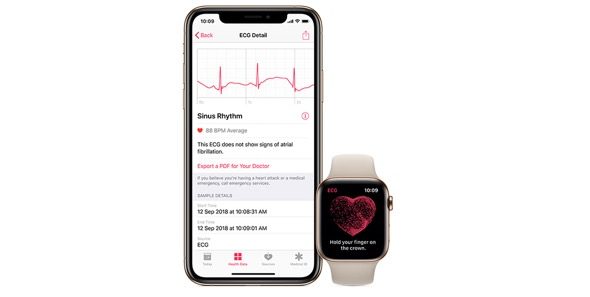
Heart rate
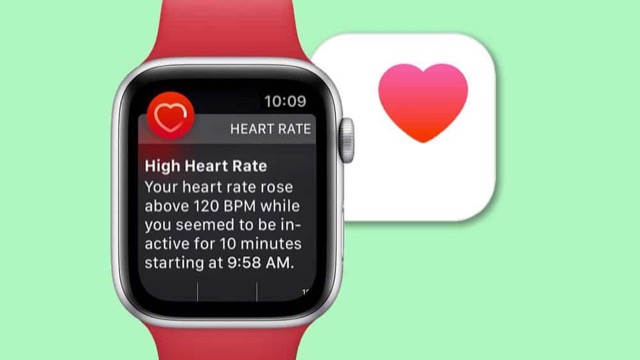
The Apple Watch has always been one of the most accurate health trackers for measuring your heart rate during exercise. According to two studies conducted in 2016 and 2019, the watch beats even specialized bands like those of Fitbit in accuracy. The last of them suggested that the watch was “clinically acceptable during exercise.”
Atrial fibrillation
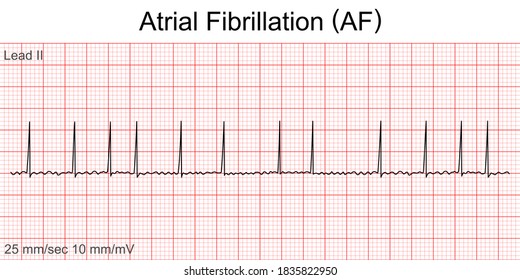
Perhaps this particular case is what Apple boasts most about in its advertising materials. As the new versions of the watch contain a notification system that alerts the user if he senses a possible case of atrial fibrillation, which is one of the common cases of heart disease, especially in the elderly, which can be dangerous in the short and long term. But how accurate is the clock here?
At the end of last year, a Stanford University study was released on the matter. And these are the results:
◉ The watch sensed an irregular heartbeat in a small number of participants, and the researchers report that this is a good thing. It means that the watch is not over-sensing the results incorrectly.
◉ The accuracy of the clock was quite acceptable. As an acceptable proportion of those who received the notification turned out to have a real case of atrial fibrillation.
◉ The study did not use the new EKG feature, as it began in 2017, before the release of the fourth generation of the watch, which contains the feature.
◉ The study was not without problems, as more than half of those who received a notification were young people (less than 40 years old). These people are not at high risk of atrial fibrillation.
What does this mean?
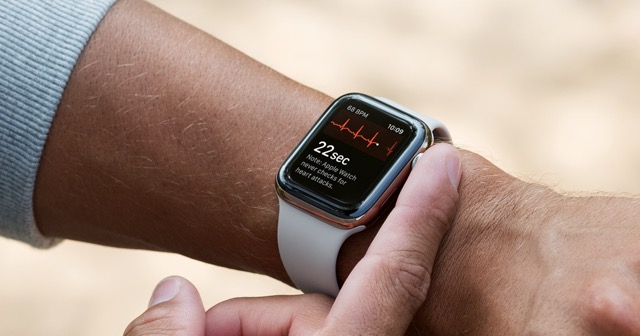
If you are elderly or have a special condition such as an artificial valve or other heart condition, you may benefit from the atrial fibrillation sensing feature in your Apple Watch. Although it is not conclusive and does not mean that you definitely have the condition, it is strongly recommended that you go to your doctor to discuss this notice.
If you are young and do not suffer from any other diseases, the value of the notice is much less. And it's not a reason to buy the watch for it if you don't want to use the rest of the features.
EKG property, and what doctors think
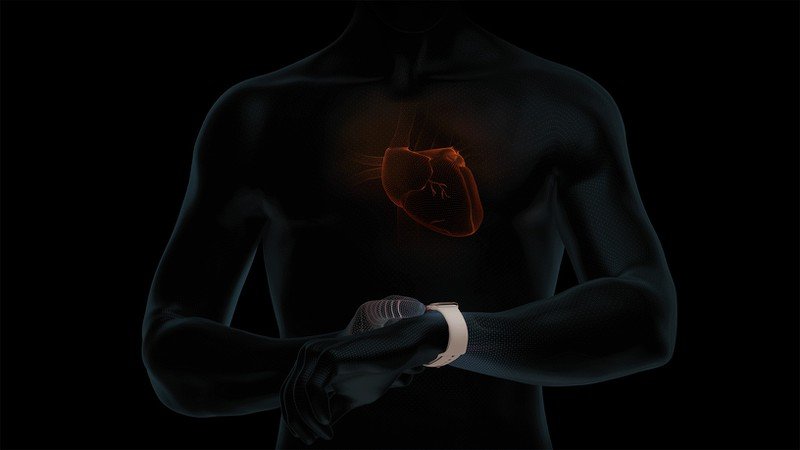
Many doctors noted that the EKG feature in its current form does not have an accuracy close to even the devices used in hospitals. It also does not detect heart failure as many believe.
One of the emerging problems with the development of the Apple Watch and other watches is that users have excessive health data, and not all of it is highly accurate. Which leads to problems such as psychological anxiety from health problems that do not exist. Or misinterpretation of the results coming from the hour without resorting to consulting a doctor.
Oxygen ratio property
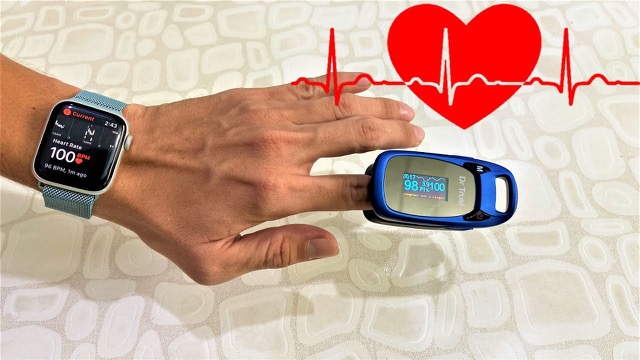
Without going into details of how it works, Apple claims that it has made a system that can sense the percentage of oxygen in the blood if it ranges between 70% and 100%. This property has no large studies so far to prove its effectiveness. The current data also indicates the opposite, that is, it is not accurate.
Data from this sensor may be useful in the future when combined with data from several other sensors or improved accuracy. But now, if you need blood oxygen saturation data, you can buy a custom device that is placed on the finger and does not cost a lot of money. It is far more accurate.
Conclusion

The Apple Watch is almost the best exercise tracker on the market. And not only because of the accuracy of some of the sensors that are higher compared to other watches, but also because of the software system that Apple developed for the watch. But it should never be relied upon to diagnose illnesses or to check on health. If you feel any symptoms, you should see a doctor immediately, even if the clock says that there are no problems.
But if you suddenly get a warning that you should see a doctor, it won't hurt to listen to him. Because the watch has proven that its accuracy is acceptable in some cases. While listening to the doctor's advice and not worrying about any extra information that the watch is currently giving you.
Sources:
idropnews | medpagetoday | idropnews

Does the Apple Watch XNUMX have a swimming pool?
I have an Apple Watch XNUMX and it has this feature
And if the Apple Watch XNUMX has this feature, then God willing, it will
I buy it, because my only sport is swimming in
The indoor swimming pool and its new water-resistant feature
For fifty meters and the watch glass is very strong
I am a user of the Apple Watch 6.
Frankly, if you are a non-athletic person, the watch is not useful and you will get bored of it after months because you must charge it daily.
As for the percentage of oxygen, it is not accurate in the calculation, and you will notice this in some abnormal measurements
An article when you read it that shows your interest in your customers and the emphasis on not relying on the watch 100%, and this is your concern, so thank you
It is undoubtedly the best watch
But it needs more development
For example, the battery is sufficient for at least two days
The sound of the beeps must also be raised so that if a call comes on the watch, the sound can be heard from afar
I also increased the size of the watch screen slightly and re-designed so that it was the same design as the iPhone
The current design is very boring
Apple is the best technology company
Yes, I am a user of the Apple Watch, and it helps me a lot in following up my heart rate, oxygen rate, walking and daily activity in general, and I have become indispensable for it.
I tried the Apple Watch for a while and in general, it is very useful for users who receive a lot of calls and messages in terms of noticing notifications and even sometimes even answering calls, add to that the user’s movement calculation.
With regard to being considered a medical device that measures the heart rate and the percentage of oxygen and alerts to certain health conditions, it can be considered an (assistant) device that alerts the user to refer to the doctor and may save the life that is by the order of God Almighty.
We also heard about cases of elderly people falling and sending the watch to notify the emergency, which is an important additional feature.
If it is not completely reliable, but we can use its data.
Peace be upon you. I want to know how everything related to the heart works in the sixth Apple Watch. I have iPhone Max Plus, two SIMs, and the sixth Apple Watch, but the problem is that the ECG does not work. I am in Morocco.
I think that the ECG feature does not work in all countries, Apple has to agree with the country to activate it in it… I hope one of the brothers will correct me if I am wrong
I bought the watch, the sixth edition, to escape the very bad Samsung watch and the poor after-sales service, and to put them on the consumer, they sell a sports watch designed for swimming and when it breaks due to water, they say that it is not intended for swimming 😳.